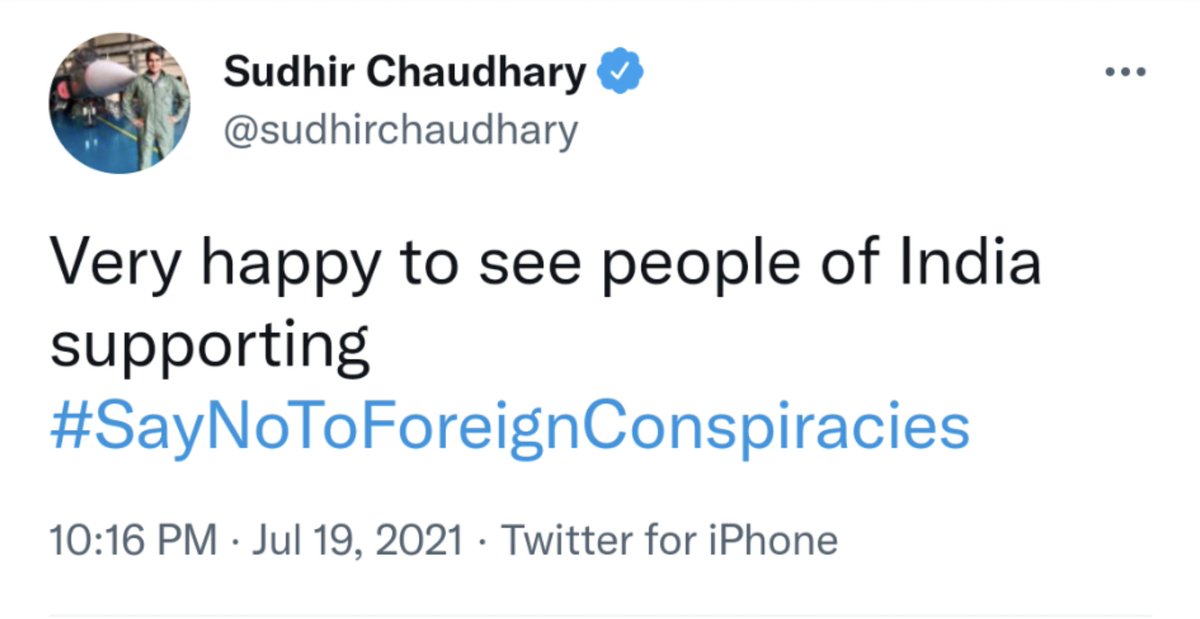
10 FAQs on Pegasus in the Indian context:
1 Q. How did this expose' come about?
A. Forbidden Stories, an online website and Amnesty International had access to a leak of phone numbers of NSO clients selected for surveillance. NSO makes the Pegasus software.
1 Q. How did this expose' come about?
A. Forbidden Stories, an online website and Amnesty International had access to a leak of phone numbers of NSO clients selected for surveillance. NSO makes the Pegasus software.
2 Q. Was Pegasus investigation Targeted against India?
A. No. The investigation was done by 17 media agencies and panned across 45 countries.
A. No. The investigation was done by 17 media agencies and panned across 45 countries.
3 Q. Can any one buy Pegasus software?
A. No. Only sovereign governments can buy the software. Private parties cannot buy the software.
A. No. Only sovereign governments can buy the software. Private parties cannot buy the software.
4 Q. Did GoI confirm that they bought the software?
A. No. They did not confirm. Interestingly, they did not deny buying the software too despite specific questions.
A. No. They did not confirm. Interestingly, they did not deny buying the software too despite specific questions.
5 Q. Did GoI confirm any such surveillance?
A. The GoI has said that there has been 'no unauthorised' surveillance. This is seen as a confirmation of authorised surveillance.
A. The GoI has said that there has been 'no unauthorised' surveillance. This is seen as a confirmation of authorised surveillance.
6 Q. How many journalists numbers were under surveillance?
A. It is 180 in all, of which 49 are Indian.
A. It is 180 in all, of which 49 are Indian.
7 Q. Which countries were found to be using it against Journalists, activists and opposition leaders?
A. The countries are: Azerbaijan, Bahrain, Kazakhstan, Mexico, Morocco, Rwanda, Saudi Arabia, Hungary, United Arab Emirates (UAE) and of course INDIA. We are in good company
A. The countries are: Azerbaijan, Bahrain, Kazakhstan, Mexico, Morocco, Rwanda, Saudi Arabia, Hungary, United Arab Emirates (UAE) and of course INDIA. We are in good company
8 Q.Who all were targeted in India?
A.49 Indian journalists, 3 opposition leaders, 2 Ministers and even one sitting SC Judge were targeted.
A.49 Indian journalists, 3 opposition leaders, 2 Ministers and even one sitting SC Judge were targeted.
9 Q. How sure is it that they were snooped upon?
A. Amnesty's Security Lab performed forensics analyses on the phones of 67 victims revealing successful infections
They were later peer reviewed by a Canadian tech company specialising on Pegasus. Both confirmed the infections.
A. Amnesty's Security Lab performed forensics analyses on the phones of 67 victims revealing successful infections
They were later peer reviewed by a Canadian tech company specialising on Pegasus. Both confirmed the infections.
10 Q. Is it possible that government of India did not buy the software and it may be the act by other organisations within India?
A. No. Only governments can buy the software. And the names of those under surveillance has a definite pattern that threatens political power.
A. No. Only governments can buy the software. And the names of those under surveillance has a definite pattern that threatens political power.
It is 40 Journalists. Not 49.
• • •
Missing some Tweet in this thread? You can try to
force a refresh




